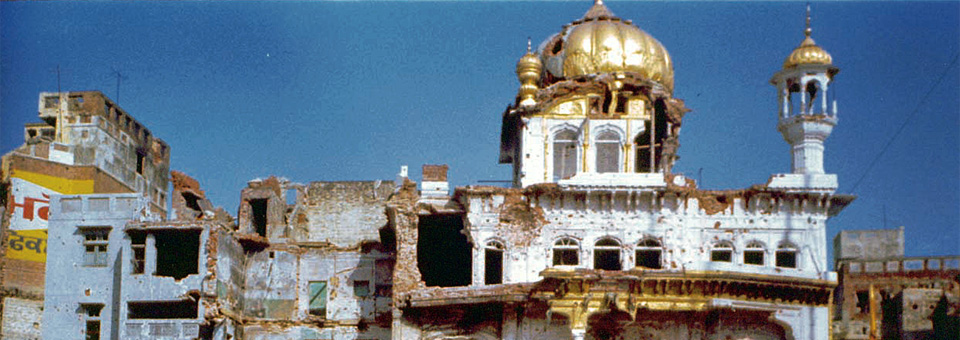Election results from several states of India are eagerly being awaited early this week and are being presented by traditional media as a glorious symbol of India’s democratic strength, despite the shallow and circumvented reality of Indian democracy.
In talking about the strengths and fallacies of Indian democracy I recall the words of the famous Latin American Nobel Laureate, Mario Vargas Llosa: ‘oh sach apna tad he heh, jadon oh kisma de ibaret de arth badl deve’. He being a brilliant poet and revolutionary thinker added credence to the already revered thoughts of social thinker John Locke who proclaimed that every individual has a right to rebel. With time, the ways in which to rebel and the extent of rebellion have undergone a steep change; as we are all witnessing today across the globe, in the name of democracy people are yearning to be heard and included in participatory democracies. India being formed after a long drawn out rebellion against the imperialist policies of the British empire and before that the tyrannies of the Mughal empire, created a sense in the people that this was a fresh democracy and an example for the rest of the developing world. But with each passing year, there has been trouble in forming a stable and caring Republic and the Indian people are still divisive and marginalised in many forms.
With the approaching world-wide Womens Day on 10 March, the lot of Indian women is little better off even though the largest national political party is headed by a strong women who has seen first-hand the fallout of violence and failed promises. Many women in different corners of India are still waiting for the return of young sons, husbands, fathers, all of whom have disappeared in the wilderness that is Indian democracy; fallen to the might of intolerant governance and the uncaring state, be it Kashmir or the eastern corners of India, or indeed in The Punjab where still many women are struggling to come to terms with broken homes and the loss of men-folk due to political struggles that are still going on in many forms.
Recently, a report was published in Kashmir where the State Government’s own commission acknowledged the presence of hundreds of unnamed graves where thousands of unnamed political opponents are buried with gunshot wounds. Brutalised by the security forces in the name of safeguarding Indian sovereignty, these unnamed individuals are now being dug up to see if they are the lost sons, fathers or husbands for whose whereabouts Kashmiri women have been struggling to know for long periods of time. The very same thing happened in Punjab to countless Sikh families, but ominously the individual there who reported the existence of unnamed graves, Sardar Jaswant Singh Khalra too was made to disappear from the scene and his whereabouts are still not fully known; how he died or was killed is still under official review.
This Indian democracy which came into being with a fresh approach and numerous tall promises is on the radar for the wrong reasons. People, especially minorities such as the Sikhs, who were promised that there interests and sacrifices in the struggle to form modern India would be fully respected, are today left out altogether. The Sikhs holiest shrine was attacked by the Indian army to quell the aspirations and political demands of the Sikhs, and in the thousands Sikhs were lynched all over India by people who were openly encouraged and backed by the then elected Government. To this day, nobody has come forward to answer why this happened and what happened to all of the promises that were made by the leading voices of the Indian freedom struggle.
The same thing is still happening in Kashmir to people who too were promised a better future in return for joining India at the time of independence. Even in north eastern states like Nagaland, Manipur, and Assam, Indian democracy is not trusted and people there feel left out, regularly forced to undergo the brutality of the Indian security apparatus. Several states in central India too are struggling and are commonly termed as being a ‘leftist threat’ ‘housing Maoists’ – essentially these people are tribal and ordinary working class people who are demanding better governance and the opportunity of dignified life in the form of participatory democracy, assured education and basic healthcare.
Centralised governance has marginalised all of the states in India taking control over natural resources and power-generating infrastructures. Forced to come under centralised control, this is too often serving the interests of a few influential families rather than being to the benefit of the population. Like the former Eastern Block of the world during the era of the Soviet Union where one party retained control in the form of socialism, in Indian democracy the political dynasties of a few families are hoping to keep hold over governance; participatory democracy only exists in newspapers. No doubt people are beginning to question the ways of governance and are asking for a greater say, and with many political changes unfolding in different parts of the world, Indian democracy too will undergo a change and the people will prevail. As a Sikh and being a person who rebelled at one time, I hold an optimistic mind and deeply wish that the Sikhs as a nation and a strong community will shed its dead wood and emerge strongly with a leadership who care about Sikhs, rather than his or her family only.




